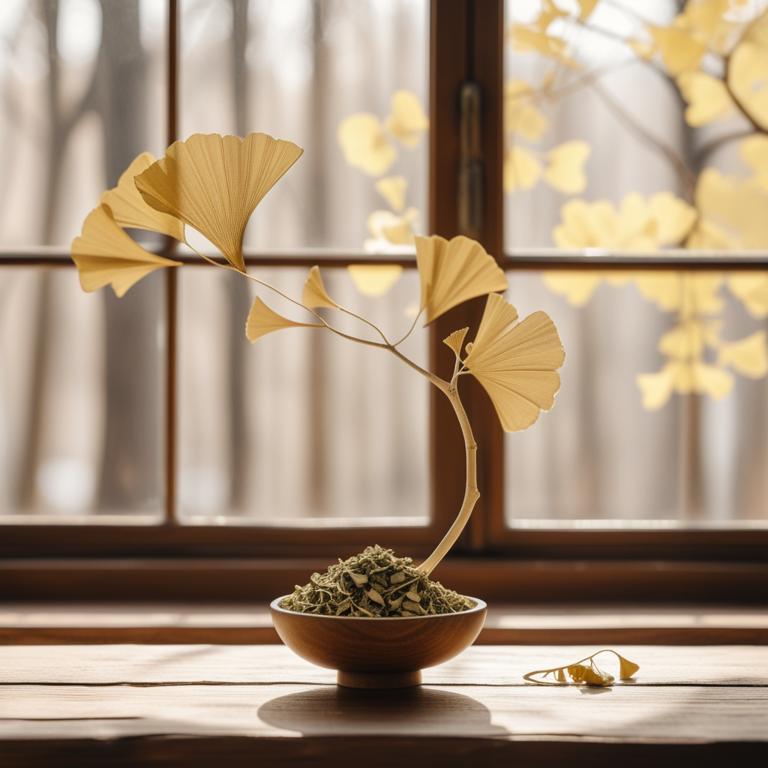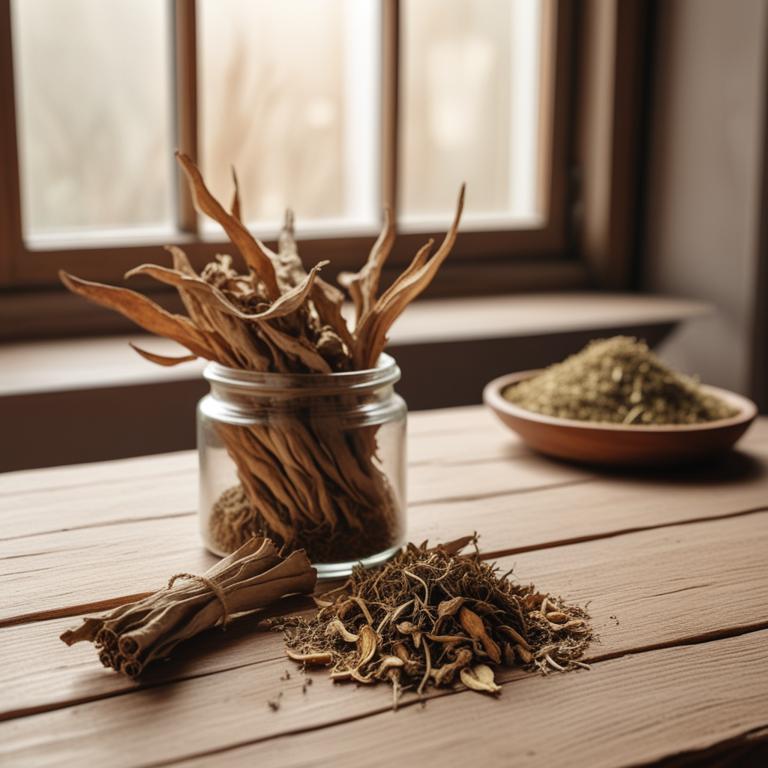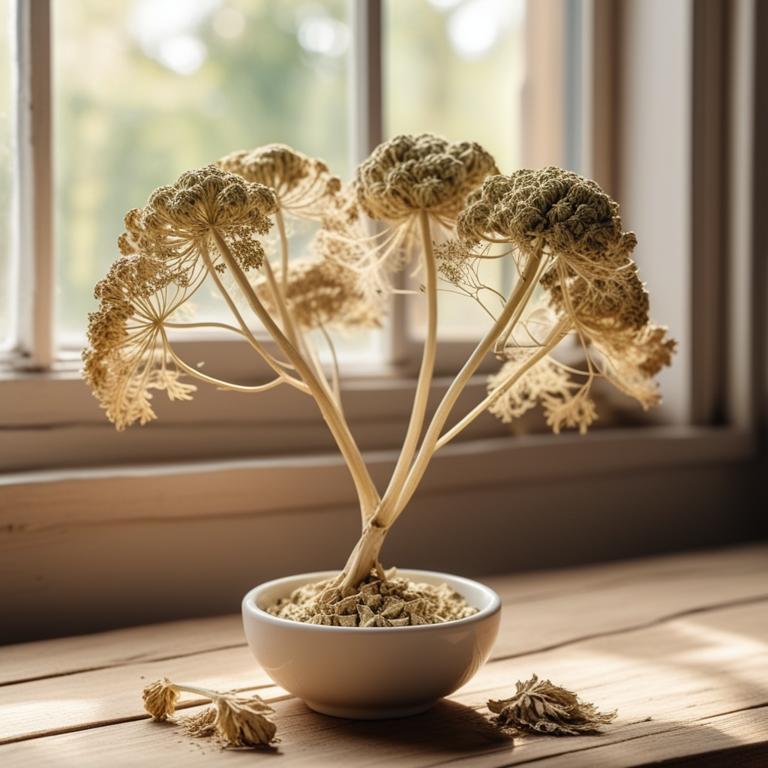Updated: Dec 1, 2024
Understanding Endometriosis: Its Causes and Natural Remedies with Medicinal Herbs
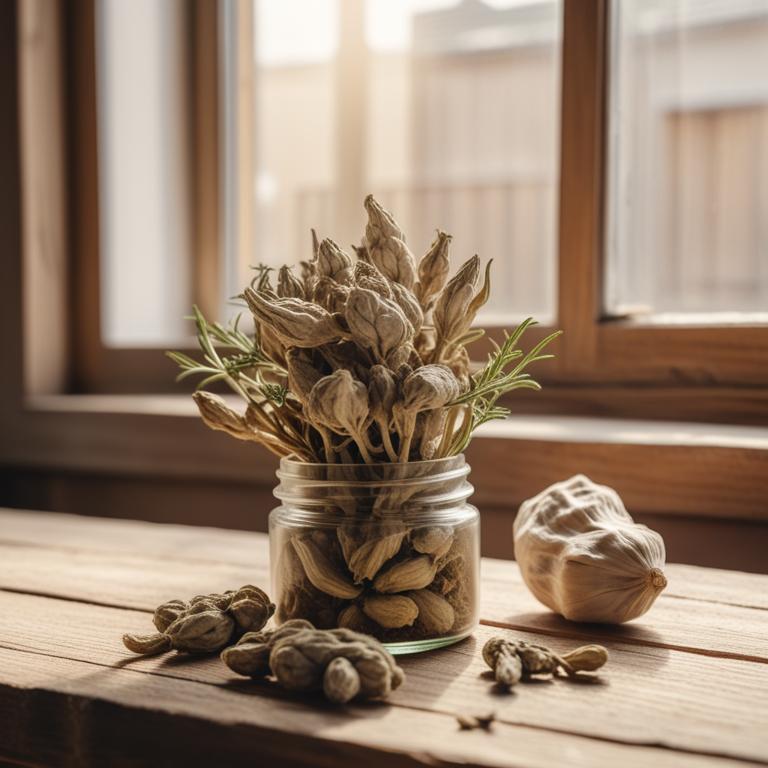
Endometriosis is a condition where tissue similar to the lining of the uterus grows outside the uterus, causing pain, inflammation, and heavy bleeding during periods.
It can disrupt daily life, making even simple tasks a challenge due to chronic pain and fatigue. The exact cause of endometriosis is still unknown, but it's believed to be linked to hormonal imbalances, genetic predisposition, and environmental factors. Some women may experience painful periods, heavy bleeding, and infertility, while others may have no symptoms at all. Herbal remedies have been used for centuries to help alleviate the symptoms of endometriosis.
Herbs such as turmeric, with its anti-inflammatory properties, and ginger, which helps to reduce pain and nausea, have shown promise in soothing the discomfort associated with endometriosis. Other herbs like red clover, which is rich in isoflavones that help to balance estrogen levels, and dandelion root, which has been used to support liver function and reduce inflammation, can also be beneficial. These herbs can be consumed in various forms, such as teas, capsules, or tinctures. Drinking turmeric tea or ginger tea can be a soothing way to calm the body during periods, while taking red clover capsules may help to regulate hormonal imbalances. Some women also find relief by using herbal combinations, such as a blend of turmeric, ginger, and dandelion root, in the form of a tincture or capsule.
However, it's essential to talk to a healthcare professional before starting any new supplements, especially if you're already taking medications or have any underlying health conditions.
Table of Contents
- What causes the formation of endometriosis?
- What are the advantages of using herbal remedies for endometriosis?
- What are the primary herbal therapies for endometriosis?
- What are the popular herbal preparations used to alleviate endometriosis symptoms?
- What herbs should be avoided by people with endometriosis?
- FAQ
What causes the formation of endometriosis?
The main causes of endometriosis are a complex mix of hormonal, genetic, and environmental factors.
One of the main causes is hormonal imbalance, particularly the dominance of estrogen. Estrogen promotes the growth of endometrial tissue, and when it's out of balance with progesterone, it can lead to the growth of endometrial lesions outside the uterus. This imbalance can be caused by a variety of factors, including birth control pills that contain estrogen, and conditions that affect hormone production, such as polycystic ovary syndrome (PCOS). Estrogen dominance is often linked to another cause of endometriosis: genetics. Research suggests that women with a family history of endometriosis are more likely to develop the condition themselves. This suggests that there may be a genetic component to endometriosis, although the exact genes involved are not yet fully understood. Inflammation is another potential cause of endometriosis.
This is because endometriosis is often characterized by chronic inflammation in the affected areas. This inflammation can lead to the growth of endometrial lesions, and can also contribute to the development of pain and other symptoms associated with the condition. Autoimmune disorders, such as rheumatoid arthritis and lupus, have also been linked to an increased risk of endometriosis. In autoimmune disorders, the body's immune system mistakenly attacks healthy tissues. In the case of endometriosis, the immune system may mistakenly attack the endometrial tissue, leading to inflammation and the growth of endometrial lesions. Stress is another potential contributor to endometriosis. Chronic stress can disrupt hormone production, leading to hormonal imbalances that can contribute to the development of endometriosis.
Stress can also weaken the immune system, making it more susceptible to autoimmune disorders and chronic inflammation.
What are the advantages of using herbal remedies for endometriosis?
Using herbs for endometriosis can be really helpful.
One of the main benefits is that they can reduce inflammation and pain. This is because some herbs have anti-inflammatory properties that can help calm down the body's response to endometriosis. This can lead to less discomfort and fewer symptoms. Another benefit is that herbs can help regulate hormones, which is often a big issue for people with endometriosis. When hormone levels are balanced, the growth of endometrial tissue can slow down, and symptoms can improve.
This can also lead to lighter periods and fewer menstrual cramps. Some herbs can also help with digestion and bowel movements, which is great for people with endometriosis who often experience constipation or bloating. Herbs can also help reduce stress and anxiety, which can exacerbate endometriosis symptoms. By calming the mind and body, herbs can help people feel more relaxed and in control. Finally, herbs are often gentler on the body than traditional medications, which is a big plus for people who want to avoid harsh chemicals.
This means that people can try herbs as a first line of treatment or use them in addition to other therapies.
What are the primary herbal therapies for endometriosis?
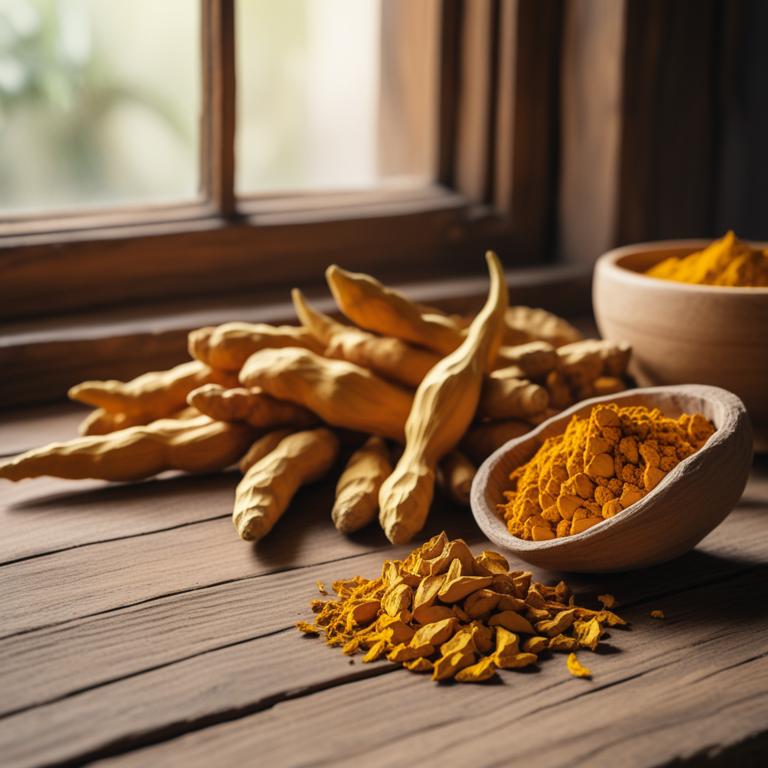
Herbs have been used for centuries to help manage endometriosis symptoms.
One of the key herbs is Curcuma longa, also known as turmeric. It contains a compound called curcumin, which has powerful anti-inflammatory properties that can help reduce pain and swelling in the uterus. This can make it easier to manage menstrual cramps, bloating, and other symptoms associated with endometriosis. Another herb that can be beneficial is Zingiber officinale, or ginger. Ginger has natural pain-relieving properties that can help reduce menstrual cramps and nausea. It also has anti-inflammatory properties that can help reduce inflammation in the uterus. When combined with curcumin from turmeric, ginger can be a powerful combination for managing endometriosis symptoms. Licorice root, or Glycyrrhiza glabra, is another herb that can help with endometriosis. It has anti-inflammatory properties that can help reduce inflammation in the uterus and alleviate symptoms such as bloating and abdominal pain.
Licorice root also has a natural hormone-balancing effect, which can help regulate menstrual cycles and reduce estrogen dominance. Some research suggests that Trifolium pratense, or red clover, may also be beneficial for endometriosis. Red clover contains isoflavones, which are plant-based estrogens that can help balance hormone levels. This can reduce estrogen dominance, which is a common cause of endometriosis. Additionally, red clover has anti-inflammatory properties that can help reduce inflammation in the uterus. Finally, Vitex agnus-castus, or chaste tree berry, is an herb that has been used for centuries to regulate menstrual cycles and reduce symptoms of endometriosis. It has a natural hormone-balancing effect that can help reduce estrogen dominance and alleviate symptoms such as bloating, abdominal pain, and heavy menstrual bleeding. Chaste tree berry also has anti-inflammatory properties that can help reduce inflammation in the uterus. It's worth noting that while these herbs may be beneficial for managing endometriosis symptoms, they should not be used as a replacement for medical treatment.
Anyone considering using herbs to manage endometriosis symptoms should speak with their healthcare provider first to discuss the best course of treatment.
What are the popular herbal preparations used to alleviate endometriosis symptoms?

For people with endometriosis, herbal preparations can be a helpful way to manage symptoms.
A tincture is a liquid extract of herbs that can be taken in a small amount of water. Herbs like blue cohosh and wild yam are often used to reduce pain and inflammation. Capsules are another form of herbal preparation that can be taken orally. They contain dried herbs that have been ground into a fine powder. Herbs like turmeric and ginger are known for their anti-inflammatory properties, which can help ease endometriosis symptoms. A decoction is a strong liquid made by boiling herbs in water.
Herbs like chamomile and red clover are often used to calm the body and mind, reducing stress and anxiety that can exacerbate endometriosis symptoms. Infusions are similar to decoctions, but they're made by steeping herbs in hot water rather than boiling them. Herbs like peppermint and fennel are often used to ease cramps and bloating, common symptoms of endometriosis. Creams are topical preparations that can be applied directly to the skin. Herbs like calendula and arnica are often used to reduce inflammation and ease pain in the affected area. Some creams also contain soothing ingredients like aloe vera and chamomile to calm the skin and reduce irritation. It's essential to note that while herbal preparations can be beneficial, they should not replace medical treatment.
Always talk to a healthcare provider before trying any new herbal remedies, especially if you're taking medications or have underlying health conditions.
Additional Resources:
- 8 herbal teas for endometriosis
- 10 herbal tinctures for endometriosis
- 7 herbal creams for endometriosis
What herbs should be avoided by people with endometriosis?
If you have endometriosis, it's essential to be careful with some herbs that might make your symptoms worse.
For example, Paeonia lactiflora, also known as peony, contains compounds that can stimulate the uterus and worsen heavy bleeding or cramps. Similarly, Angelica sinensis, or dong quai, is often used to treat menstrual problems, but its estrogen-like effects can exacerbate endometriosis by promoting the growth of endometrial tissue outside the uterus.
Ginkgo biloba is another herb to approach with caution. While it's often used to improve blood flow and reduce inflammation, it can actually increase estrogen levels and worsen endometriosis symptoms. Valeriana officinalis, or valerian root, may seem like a calming herb to help with sleep and stress, but its effects on hormone levels can also contribute to the growth of endometrial tissue.
Lastly, Panax ginseng can stimulate the body and worsen hormonal imbalances, making it a potentially problematic choice for people with endometriosis.
FAQ
Are there any specific herbs that can prevent endometriosis?
Turmeric contains a compound called curcumin that may help reduce inflammation, a common symptom of endometriosis.
Ginger has anti-inflammatory properties that could also ease endometriosis symptoms.
Some research suggests that rosemary, with its antioxidants and anti-inflammatory compounds, may help prevent or slow down the growth of endometrial cells.
Is it safe to use herbal remedies for endometriosis during pregnancy?
Using herbal remedies for endometriosis during pregnancy is generally not recommended.
Some herbs can stimulate the uterus, which could cause complications. Others may affect hormone levels or interact with medications.
It's best to avoid them until after pregnancy to ensure a safe and healthy experience for both mom and baby.
Are there any herbs that can reduce the frequency of endometriosis?
Some research suggests that certain herbs like turmeric and ginger may help reduce endometriosis symptoms.
Turmeric contains a compound called curcumin, which has anti-inflammatory properties. Ginger is also known to have anti-inflammatory effects and may help alleviate pain and discomfort associated with endometriosis.
More studies are needed to confirm these findings.
Can i combine different herbal remedies for endometriosis?
You can combine different herbal remedies for endometriosis, but be cautious.
Some herbs can interact with each other or worsen symptoms. For example, combining chasteberry and black cohosh may affect hormone levels. Start with small doses and monitor your body's response.
If you experience side effects, adjust the combinations or try a single remedy instead.
Related Articles

Understanding Endometriosis Pain: Exploring Causes and Herbal Remedies
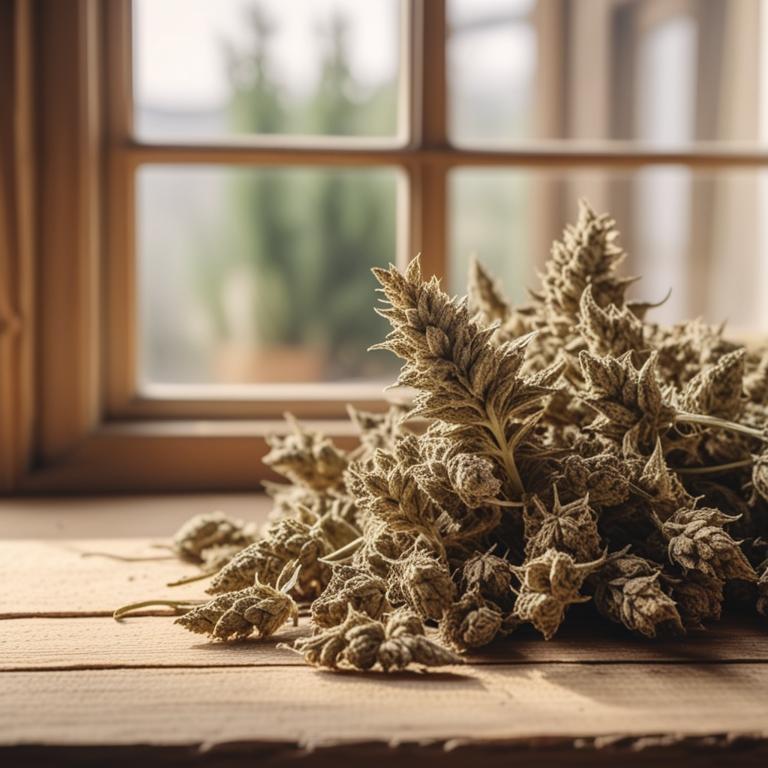
Managing Breast Pain While Breastfeeding: Causes and Medicinal Herbs
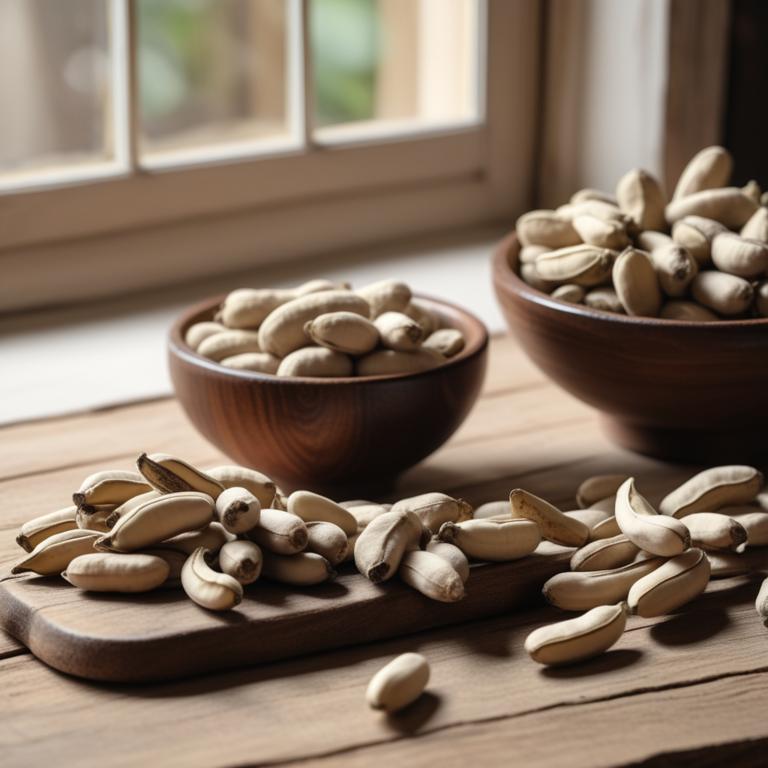
Understanding and Treating Premature Ejaculation: Medical Causes and Herbal Remedies
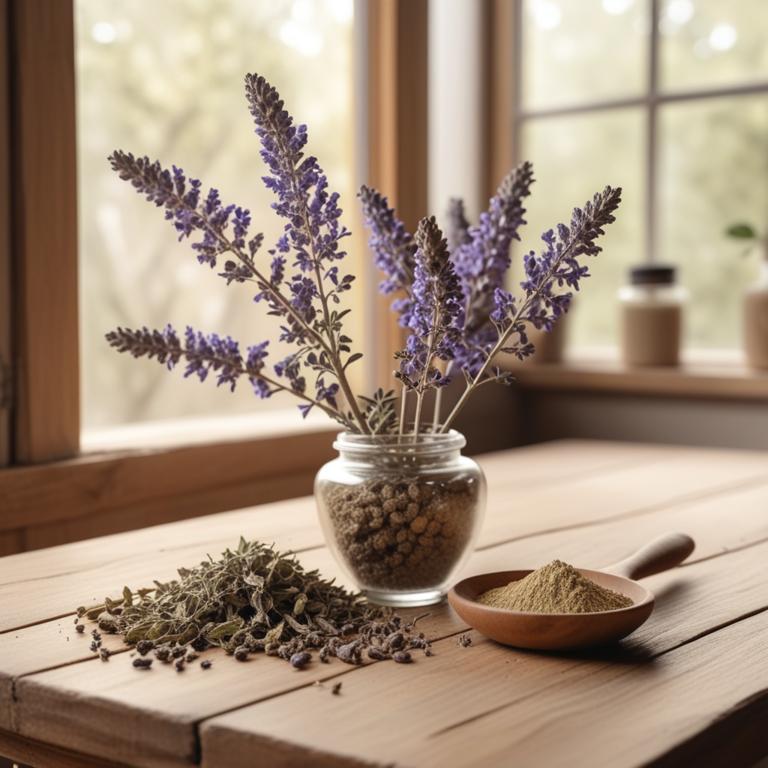
Overcoming Premenstrual Syndrome: Causes and Effective Herbal Remedies
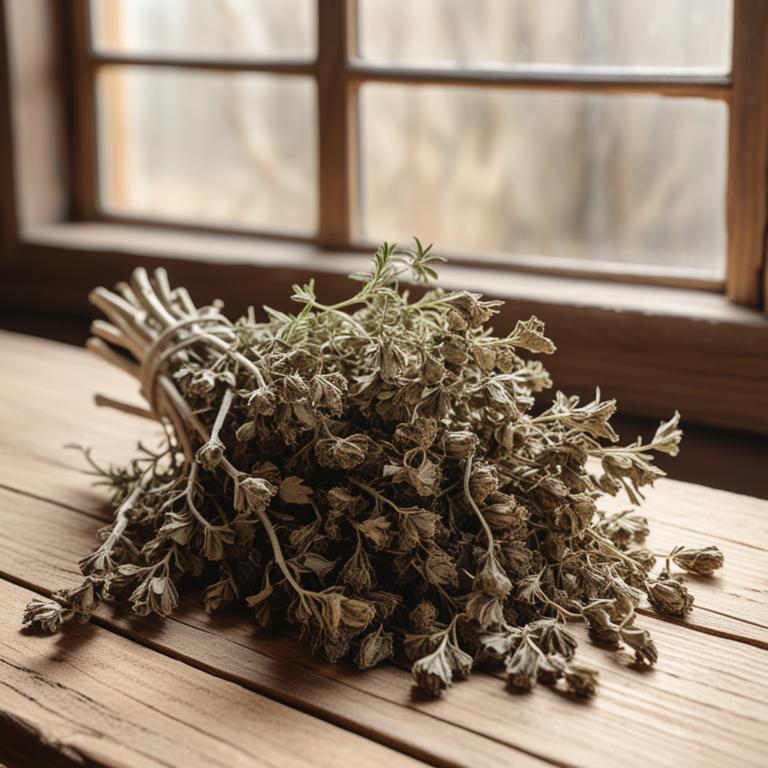
Low Sperm Count: Exploring the Reasons, Herbal Solutions, and Preparations
